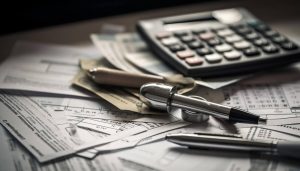No matter how well you plan your finances, unexpected emergencies can arise at any time and they can be financially devastating if you’re not prepared. Whether it’s a medical emergency, a car repair, or a job loss, having an emergency fund can provide you with the financial security you need to weather the storm. It’s a safety net that can help you cover unexpected expenses without going into debt. We’ll discuss why you need an emergency fund and provide you with tips on how to build one.
Why Do You Need an Emergency Fund?
- Unexpected expenses
Emergencies, such as a medical emergency, car accident or home repair, can arise at any time and can quickly drain your savings account. Without an emergency fund, you may be forced to rely on credit cards or loans to cover these expenses, which can quickly add up and become a financial burden. An emergency fund can provide you with the financial cushion you need to cover these unexpected expenses without disrupting your budget or long-term financial goals. - Job loss
Losing your job can be a difficult and stressful experience, especially if you don’t have any savings to fall back on. Having an emergency fund can help you cover your expenses until you find a new job. - Avoid debt
Without an emergency fund, you may be forced to take on debt to cover unexpected expenses, which can lead to high-interest charges and financial stress. - Peace of mind
Knowing that you have an emergency fund in place can provide peace of mind and reduce financial stress.
How to Build an Emergency Fund:
- Set a Savings Goal: A good rule of thumb is to have three to six months’ worth of living expenses saved in your emergency fund. Determine how much you need to save and set a target amount that will cover the said duration of time. This should include your rent/mortgage, utilities, groceries, transportation, and any other essential expenses.
- Start small: Building an emergency fund can seem daunting, but it’s essential to start small. Set a monthly savings goal and make it a habit to save a portion of your income each month.
- Create a Budget: Review your monthly expenses and identify areas where you can cut back on non-essential expenses . Redirect this money towards your emergency fund. Consider reducing your entertainment budget, cutting cable, or eating out less frequently.
- Automate your savings: Set up automatic transfers from your checking account to your emergency fund each month. This can help you stay consistent with your savings goals.
- Use Windfalls Wisely: If you receive unexpected income, such as a bonus or tax refund, consider putting a portion of it towards your emergency fund.
- Avoid Temptation: Keep your emergency fund separate from your regular checking account and avoid dipping into it for non-emergency expenses.
In summary, an emergency fund is an essential part of any financial plan. It provides you with the financial security you need to weather unexpected emergencies without disrupting your budget or long-term financial goals. It’s never too late to start building your emergency fund. By following the tips outlined in this blog, you can start building your emergency fund today and achieve financial peace of mind. Start small and be consistent, and you’ll be on your way to financial security.
*****
To speak to one of our experienced Financial Advisors, request a call back here: https://vasiliafrica.com/wealth/#call








